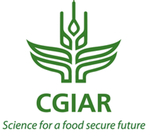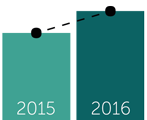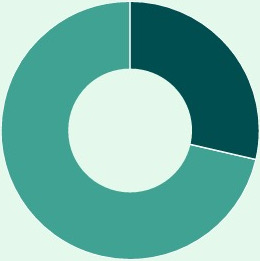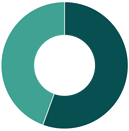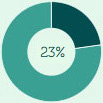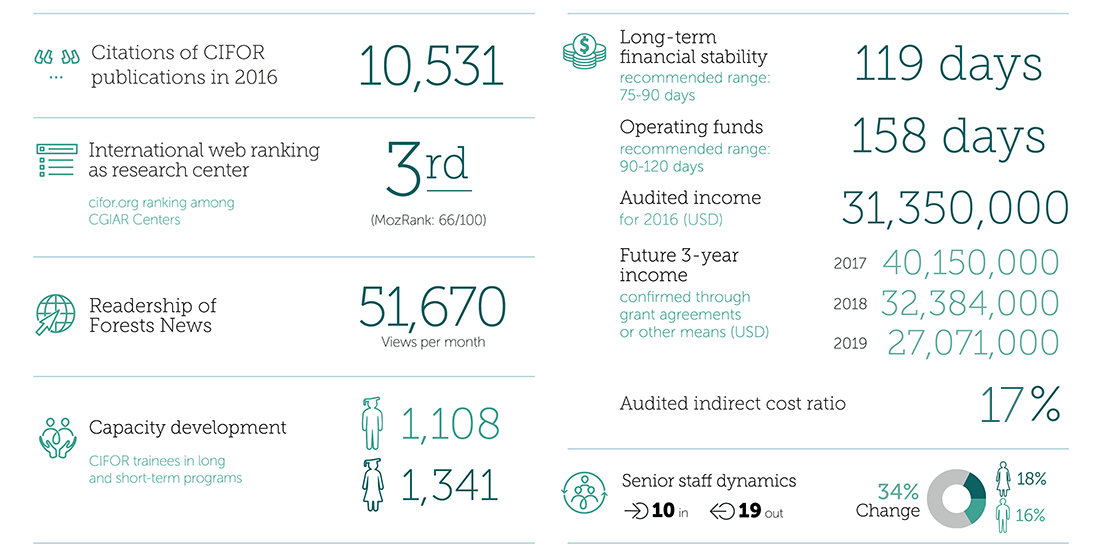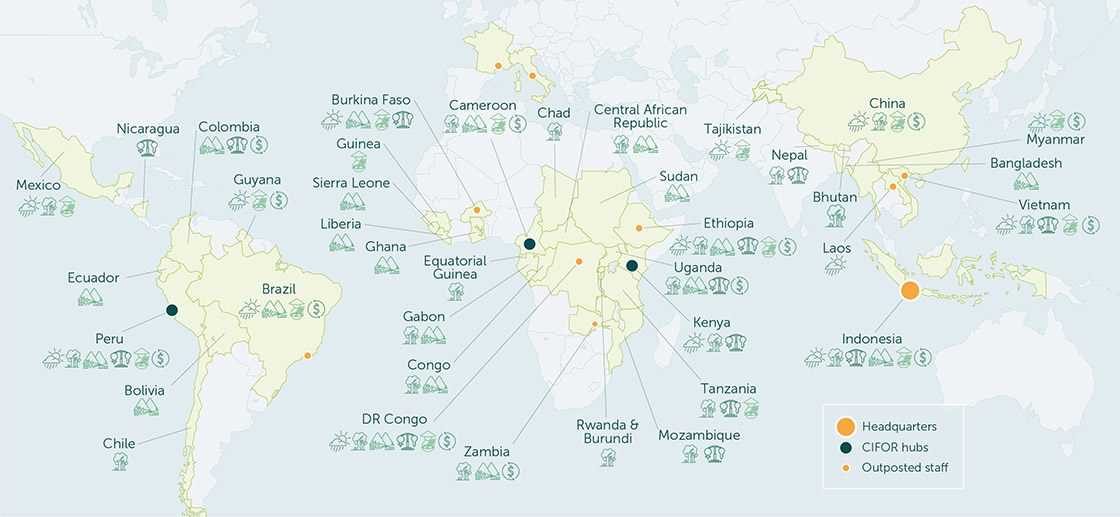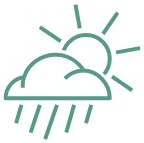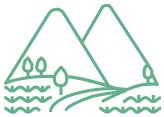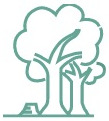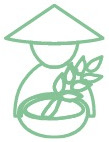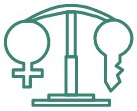
CIFOR and the CGIAR
A world free of poverty, hunger and environmental degradation
CIFOR is part of CGIAR, a global research partnership for a food-secure future. Through its innovative research, CIFOR advances CGIAR science, which is dedicated to reducing poverty, enhancing food and nutrition security, and improving natural resources and ecosystem services. The 15 CGIAR Centers work in close collaboration with hundreds of partners, including national and regional research institutes, civil society organizations, academia, development organizations and the private sector.
CIFOR’s six thematic work areas contribute to CGIAR’s three strategic goals for 2030:
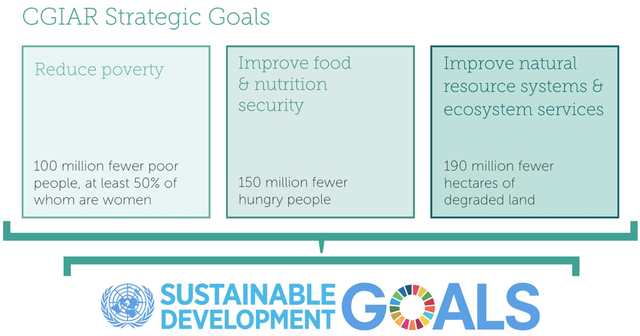
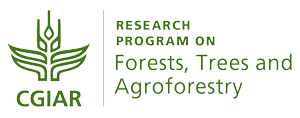
The CGIAR Research Program on Forests, Trees and Agroforestry (FTA) is the world’s largest research for development program to enhance the role of forests, trees and agroforestry in sustainable development and food security and to address climate change. CIFOR leads FTA in partnership with Bioversity International, CATIE, CIRAD, INBAR, Tropenbos International and the World Agroforestry Centre.
Over the last two years, 230 FTA researchers produced more than 1,300 FTA publications, of which 80% are open access. More than 50,000 people were trained, and very large audiences have been reached through the program’s events, websites and social media. Since 2011, FTA has delivered research and made a difference for landscapes, livelihoods and governance in all regions.
In 2016, FTA welcomed Vincent Gitz as its new Director, and wrapped up a successful first phase (2011-2016), with estimated real-world impacts:
- About 1.2 million ha of deforestation has been avoided, and 1 million ha of degradation could be prevented;
- More than 20 million ha of forest in Africa and Latin America are better managed;
- FTA research has led to a change in the legal definition of agroforestry in Peru:
- Allowing farmers to sell timber legally from their fallow plots;
- Positively affecting 2 million people, and 4.5 million ha in the Peruvian Amazon;
- Regenerating trees boosts crop yields and farm income across the Sahel:
- Farming practices encouraging natural regeneration have spread over 5 million ha, impacting 2.5 million people in southern Niger;
- FTA research has provided the first robust evidence of benefits, through surveys across Burkina Faso, Mali, Niger and Senegal.
In October 2016, the CGIAR System Council approved the next six years of FTA, within a CGIAR portfolio of programs critical to food security, natural resource management and sustainable development. CIFOR Director General Peter Holmgren outlines what to expect for Phase II, and FTA Director Vincent Gitz shares his vision of the program’s second phase.

CIFOR is also a member of the CGIAR Research Program on Climate Change, Agriculture and Food Security (CCAFS).
- In 2016, CIFOR teamed up with the International Livestock Research Institute (ILRI) in Kenya and Tanzania in a new effort to find ways forests can offset the unavoidable greenhouse gas emissions from the dairy sector.
- Other research supported public-private partnerships in the Brazilian Amazon through options that foster sustainable beef cattle production under enhanced landscape management in Brazil’s first ‘Green Municipality’ the State of Pará, with aims to scale up our actions and policy options to five other municipalities in Southern Pará.
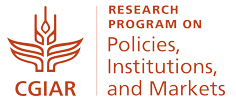
CIFOR’s work within the CGIAR Research Program on Policies, Institutions and Markets (PIM) includes new research launched in 2016:
- Analysis of 49 case studies of marine protected areas in Latin America, Africa and Asia-Pacific explained why some governance arrangements regulating local fisheries were more successful than others in sustaining fish stocks.
- Funding provided by GIZ in 2016 supported a study of tenure and trade in Nepal examined what helps and hinders communities’ attempts to establish sustainable businesses from forests, and identified changes in government regulations that could boost further investment.
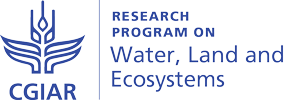
Starting in 2017, CIFOR will join the group of core partners undertaking research for the CGIAR Research Program on Water, Land and Ecosystems (WLE).
All research conducted as part of FTA, CCAFS, PIM, and WLE is supported by the CGIAR Fund Donors.
Photo by CIFOR.

